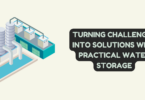
FREQUENTLY ASKED QUESTIONS ABOUT EGG FREEZING
Egg freezing (oocyte cryopreservation) is a technique of preserving a woman’s fertility by extracting, freezing, and storing her eggs for future use. This procedure has gained popularity in recent years as more women choose to delay childbearing for various reasons, such as career advancement, education, or finding the right partner.
While it is more prevalent today, numerous questions remain surrounding egg freezing. So, to help you swim through the current information available, here is everything you need to know about egg freezing based on the most frequently asked questions.
What is Egg Freezing?
Egg freezing is a medical procedure in which doctors extract your eggs, freeze, and store them for future use. This procedure allows you to preserve your fertility and have a child using your own eggs later in life.
Why Do Women Choose to Freeze their Eggs?
There are numerous reasons why you might opt to freeze your eggs. Some common catalysts include:
- Preserving fertility before undergoing cancer treatment (these treatments are likely to harm the ovaries and reduce egg quality)
- Delaying childbearing for personal, professional, or educational reasons
- Reducing the risk of age-related infertility
- Providing an alternative to storing embryos if you’re undergoing in vitro fertilisation (IVF)
- Preserving fertility in case of a family history of early menopause or other fertility issues
How is the Egg-freezing Process Done?
The egg-freezing process typically involves the following steps:
- Ovarian stimulation: First, you undergo hormone injections for 10-12 days to stimulate your ovaries to produce multiple mature eggs. This step is similar to the process used in IVF.
- Egg retrieval: The doctors retrieve mature eggs from your ovaries using a minor surgical procedure called transvaginal ultrasound aspiration. This procedure takes about 20 minutes to half an hour and occurs while you are sedated.
- Egg freezing: Specialists immediately freeze the retrieved eggs using a process called vitrification. This rapid freezing technique minimises the formation of ice crystals, which can damage the eggs.
- Egg storage: The medical professionals store the frozen eggs in a secure cryopreservation facility until you’re ready to use them.
How Successful is the Egg-freezing Process?
All figures measuring this matrix depend on numerous factors, including your age at the time of retrieval, the number of eggs retrieved and frozen, and the quality of the eggs. For example, younger women generally have higher success rates because their eggs are of better quality.
Who Can Freeze their Eggs?
This procedure is available to anyone with an interest. Moreover, some doctors offer services that cater to quick treatment requirements where hard deadlines and short time frames are key.
What Side Effects and Risks are Inherent in Egg Freezing?
Egg freezing is considered a safe and well-tolerated procedure. However, like any medical intervention, there are potential risks and side effects. Some possible risks and side effects include:
- Ovarian hyperstimulation syndrome (OHSS) is a rare condition in which your ovaries swell and become painful due to hormone injections
- Infection or bleeding from the egg retrieval procedure
- Damage to the eggs during the freezing and thawing process
- Emotional stress and anxiety related to the procedure and its outcome
How Much Does Egg Freezing Cost?
Generally, the cost of one egg-freezing cycle ranges from $AUD7,000 to $AUD10,000. This price range includes the cost of ovarian stimulation medications, egg retrieval, and egg freezing. In addition, there is an annual storage fee, which typically ranges from $AUD300 to $AUD600.
Conclusion
Egg freezing provides a valuable opportunity to start your family only when you are ready. So, if you are considering egg freezing, it is essential to consult with a reproductive specialist to discuss your circumstances and determine if this procedure is right for you.






